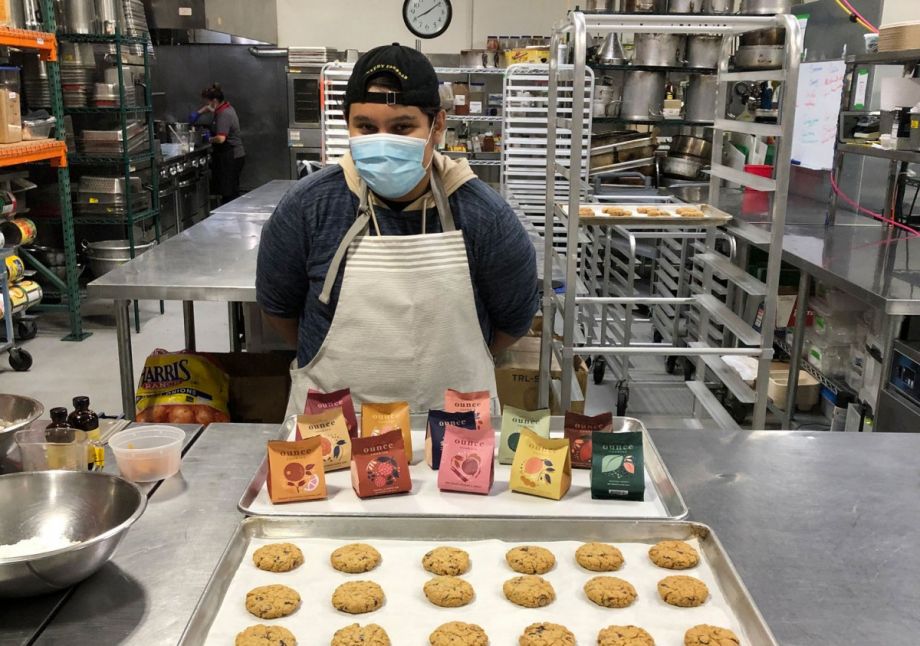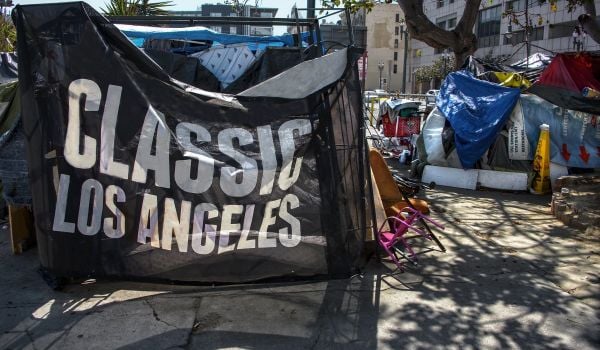Globally, San Francisco is best known for its Big Tech businesses, but local nonprofit SFMade sees manufacturing as the foundation of the Bay Area’s economy. It estimates that manufacturing employs more than 300,000 jobs in the area and is part of the supply chain of everything, from technology to agriculture to art. SFMade provides educational and training resources to both local manufacturing businesses and job seekers, and a big part of that involves playing matchmaker between these two groups. Its focus on creating career pathways in manufacturing for local residents extends to young people. Through its program YouthMade, SFMade has placed 220 students in internships across the city’s small and medium manufacturing businesses since 2015.
But last year was unlike any other as YouthMade grappled with the challenge of providing uninterrupted services in the midst of the pandemic to its student population. YouthMade was born out of SFMade’s partnership with two local organizations focused on helping youth learn skills in paid internships: Jewish Vocational Services (JVS) and Enterprise for Youth. The three organizations innovated quickly to introduce new features to keep the six-year-old youth internship program up and running. Immediately, they created opportunities to place young people in brand new online internships with local manufacturing businesses over the summer. A few months later, YouthMade launched its first fall internships with the goal of providing ongoing opportunities to students coping with learning disruption. As a result, 19 students completed summer internships and 22 students worked in fall internships last year. Going forward, both students and participating businesses have the option to choose from online or in-person internships.
Placing young people with employers looking to raise their online game proved to be a no-brainer. “We found medium businesses that employ 15-50 people needed a lot of help during the pandemic with tasks like remote data entry, accounting, and light customer services such as responding to emails. The big one for our interns was social media, which many companies had put on the backburner before the pandemic. That was really exciting for our interns to get involved with,” says George Colón, Director of Workforce & Youth Programs, SFMade. And while it’s too soon to say, he expects fall internships are more likely to lead to job opportunities than summer internships because of the hiring cycle of local businesses.
The interns are typically low-income, minority public high school students or 18–21-year-old transitional age students likely to be the first in their family to earn a four-year degree. The businesses that host interns may not have national name recognition, but they are often minority-run, community-proud, sustainable small businesses that provide well-rounded exposure to the interns.
Take the Latino-owned art studio and gallery, Artillery Apparel Gallery, that specializes in making ceramics alongside showcasing painting and photography. Or Ounce Cookies, which is a maker of handmade craft cookies mainly from plant-based and organic ingredients. SWOPE Design Solutions, an engineering and product design company that manufactures medical devices and consumer products, counts among its employees a former intern placed by SF Made.
“People don’t understand what manufacturing is. They hear the word and think of a giant room full of machines. We want young people to understand what manufacturing is, how to start a business and how to run it and grow it. Manufacturing is an engine for entrepreneurship,” says Colón. SFMade’s youth partner organizations have found that the all-hands-on-deck operations of small businesses give interns a much broader exposure than traditional internships at large corporations which assign interns to one department.
In addition to job skills, paid internships also offer an immediate financial benefit to students, many of whom attend the diverse San Francisco Unified School District and come from families that have been struggling to pay the bills during the pandemic. “We prioritize serving people who have been historically excluded from educational and employment opportunities,” says Steven Sanford , assistant director of high school and bridge programs at JVS.
Offering youth internships are integral to SFMade’s goal of making urban manufacturing an engine of economic equity. To share its learnings with other organizations working to encourage youth employment in manufacturing, it has made a toolkit available on its website The internships are grounded in curriculums designed by JVS and Enterprise for Youth. That includes familiarizing them with the history of the local manufacturing sector, supply chains, and entrepreneurship through both instruction and field trips to local businesses before the start of the internships. The training sessions, which incorporate guest speakers and digital tools, encourage youth dialogue and participation.
YouthMade was created for the benefit of young people, but it offers a learning experience to employers too. “Employers also will learn something about working with young people and meeting them where they are at. Perhaps the experience of working with a young person will encourage companies to make changes internally to reach a broader audience of job seekers,” says Colón.
This article is part of Elements of an Equitable Recovery, a series on solutions helping small, especially woman- and minority-owned, businesses survive and thrive. This series is generously underwritten by LISC.

Deepali Srivastava is a writer and editor whose articles on economic and environmental issues have appeared in Forbes Asia, MSNBC.com, and strategy-business.com. As founder and president of Script the Future, she also provides editorial services to organizations.
















